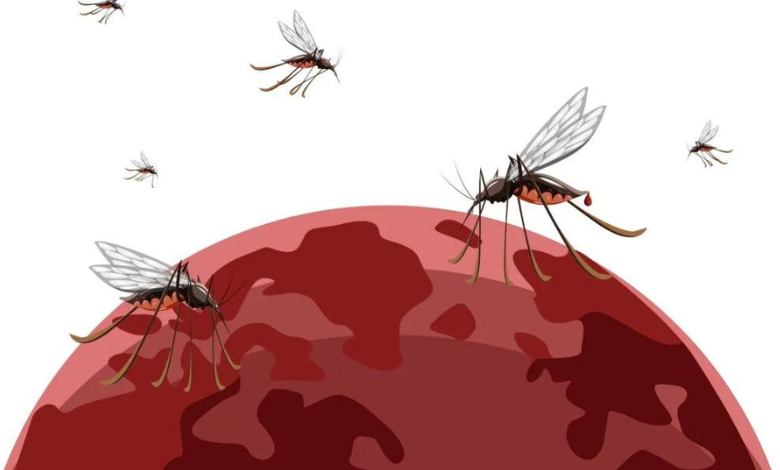Climate Crisis Increases The Risk Of Malaria: WHO Warns!

In a stark warning, the World Health Organization (WHO) has underscored the alarming impact of the climate crisis on the battle against malaria. The recently released WHO world malaria report has unveiled a disconcerting link between extreme weather events, soaring temperatures, and a notable surge in malaria cases. As global heating continues, disease-carrying mosquitoes, the culprits behind the transmission of malaria, thrive in the warm, damp, and humid conditions. This revelation marks a significant milestone as it is the first time the annual report has dedicated an entire chapter to the intersection of the climate crisis and malaria.
WHO Director-General Dr Tedros Adhanom Ghebreyesus emphasizes, “The changing climate poses a substantial risk to progress against malaria, particularly in vulnerable regions.” The report underscores the urgent need for sustainable and resilient malaria responses, coupled with immediate actions to mitigate the pace of global warming and its adverse effects.
Read More: Wolverines Gained Threatened Species Status in U.S. Due to Climate Change
One of the noteworthy revelations in the report points to rising temperatures contributing to malaria transmission in African highland areas that were previously unaffected by the disease. Moreover, Pakistan experienced a staggering five-fold increase in cases following severe flooding last year, creating an ideal breeding ground for mosquitoes in standing water.
Peter Sands, the Executive Director of the Global Fund to Fight AIDS, Tuberculosis, and Malaria, emphasizes the pivotal role of climate change in altering the landscape of malaria. He notes, “I would put climate change right up there as the thing that is changing the game on malaria in ways that we can see happening, but we don’t know fully the magnitude and how it’s going to unfold.”
Beyond the immediate impact on malaria transmission, other climate crisis-related factors, such as displacement, destruction of health services, and heightened levels of food insecurity and malnutrition, pose additional threats to efforts to eradicate the disease. Dr Photini Sinnis, Deputy Director of the Malaria Institute at the Johns Hopkins Bloomberg School of Public Health, acknowledges the potential impact of the climate crisis but highlights the difficulty in predicting its extent.
The global malaria landscape in 2022 remains concerning, with the report revealing a significant increase in cases compared to the pre-COVID-19 era. In 2022, there were 249 million cases, compared with 233 million in 2019, and the number of deaths rose from 576,000 to 608,000 in the same period.
The report also emphasizes other challenges to malaria eradication, including growing resistance to insecticides and the invasive mosquito species Anopheles stephensi. This particular mosquito, linked to malaria outbreaks, thrives in urban settings, endures high temperatures, and exhibits resistance to many insecticides. Its spread, coupled with rapid urbanization, poses an increased risk of malaria in African cities.
Resistance to critical malaria medicines, including artemisinin, is also on the rise, further complicating efforts to combat the disease. However, amid these challenges, there are rays of hope. Improved insecticide-treated bed nets, the development of new insecticides and antimalarial drugs, and the recent approval of highly effective malaria vaccines offer promising tools in the fight against malaria.
Despite these advancements, the report highlights a critical gap – the underutilization of available tools due to insufficient investment. Peter Sands asserts, “The issue is we’re not even deploying them to their full extent. The world is not investing as much as we should to deal with malaria as it is, let alone a malaria fueled by climate change.”
In conclusion, the WHO’s comprehensive report underscores the urgent need for a coordinated global response to address the intersection of the climate crisis and the malaria threat. Immediate action, increased investment, and the full deployment of available tools are imperative to confront this evolving public health challenge and pave the way for a resilient and sustainable future in the fight against malaria.



